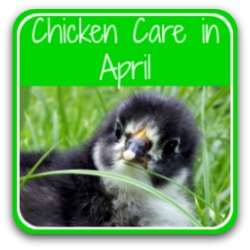- Home
- Challenges
- Mosquitoes
How to keep mosquitoes away from chickens.
Table of Contents.
This is a long, detailed article. To jump to a particular section, use these links. But bear in mind all the information here is important if you need to control mosquitoes.
Mosquitoes are one of the most prolific spreaders of malaria. But what diseases do they carry for chickens?
Malaria is most commonly spread by a specific mosquito genus, Anopheles(1).
The mosquito genera responsible for feeding on the blood of chickens are usually Culex, Aedes and Psorophora(2).
So malaria-carrying mosquitoes don't affect chickens. But the other species do. Most commonly, chicken-biting mosquitoes can carry chicken malaria (Plasmodium gallinaceum), fowlpox and West Nile virus(2).
West Nile specifically is spread from bird to bird – not only poultry but ducks, birds of prey, finches, pigeons and budgerigars – by mosquito bites.
Stings from one mosquito will do no or very limited damage. But infection from multiple mosquitoes can cause death(3).
So keeping mosquitoes away from the chicken coop and run is important.
What about other biting insects?
Midges, gnats and sand flies.
These groups of biting insects are often confused with mosquitoes, but they're very different. I'll use "midges" to cover them all.
- Midges are much smaller than mosquitoes, don't have a proboscis (the mouth of the mosquito which sucks blood), bite rather than suck blood, and don't carry or inject disease.
- Midges are not friends of chickens, though. They can become a nuisance for your flock and their bites can make them miserable. At worst, they can create anaemia and cause your hens to stop laying.
- The ways to control these insects are basically the same as for mosquitoes.
House flies, though, are a very different matter. See this article for detailed information about the harm they can do, and how you can manage it.
How do mosquitoes affect chickens?

Studies (e.g. 3, 4) have shown that chickens are most susceptible to contracting West Nile virus from multiple mosquito bites.
Despite that, every study (e.g. 4, 5) has shown that chickens survive mosquito bites. Their immune system responds to the virus by producing antibodies, and those antibodies get rid of the disease from their body before it takes hold.
The chickens in the studies did not infect anyone else, either, including other chickens they were housed with. Only mosquitoes can spread the virus, so the way to control its transmission is by controlling the mosquito population.
As with every illness, it's better to prevent the problem rather than leaving the chickens' immune systems needing to focus on defeating the virus.
Do chickens attract mosquitoes?
There's no evidence that chickens themselves attract mosquitoes, in fact just the opposite. Studies found that certainly those mosquitoes carrying malaria actively avoided biting chickens, even though they would feed on other farmyard animals like goats and sheep(6).
It seems to be something to do with smell: a mosquito (and other biting insects) target their victims by the smell they give off. They're attracted by, for example, sweat, and carbon monoxide.
But they appear not to like the smell of chickens!
The studies ultimate finding? Suspending a chicken in a cage from the bedroom ceiling reduced the incidence of mosquitoes by between 80% – 95%...
"A caged chicken sleeping with you can actually reduce the number of mosquitoes in the house."
But remember: it's not the malaria carriers who target chickens in any case.
What attracts chicken biting mosquitoes is the environment, pure and simple.
Do chickens help with mosquitoes?
Yes, to some extent.
Chickens will eat any insects they find, including midges – and they're particularly good at keeping the tick population down(7).
But they won't be able to catch every mosquito on your land, nor keep them controlled as they re-populate.
For that, we need to exercise mosquito control ourselves.
If you purchase a product through links on the rest of this page, I receive a small commission at no extra cost to you. I only recommend products I have purchased or would purchase myself and which I believe would benefit you. To learn more please see my disclosure policy.
What's the best way to kill mosquitoes? Chemical solutions.
 Plasmodium culex: one of the mosquitoes which feeds on chickens.
Plasmodium culex: one of the mosquitoes which feeds on chickens.- The most common pesticides used to control mosquitoes are Permethrin and Ivermectin. Insecticides containing Methoprene and Diflubenzuron are also effective.
- Using these with chickens involves dusting chickens with readily available chemical powders such as this one, which are absorbed into the bloodstream.
- Studies have shown that mosquitoes ingesting blood with these antiparasitic drugs are well controlled(2, 8).
- If you have chickens showing signs of being badly troubled by mosquitoes, this would be a potential first line of defence.
Downsides to chemical solutions.
Using any chemical products is not ideal, though. There's evidence that using synthetic repellents has disturbed natural ecosystems, which in turn has resulted in a developing resistance to these insecticides(2, 9).
Fortunately, that has increased interest in using natural, eco-friendly ways of controlling and repelling biting insects. Adopting those methods can help in limiting the harmful effects on both the environment and on human health.
There are two ways of doing this: making the environment unpleasant for the insects, and adding natural solutions, particularly plant-based repellents.
Both have properly researched effectiveness studies which we can easily incorporate into our own good husbandry.
The best non chemical solutions: change the environment.
There are steps we can all take to make sure that we don't unwittingly provide the environment mosquitoes enjoy, and breed best in.
- Mosquitoes breed in standing water. So look with a critical eye for anything around your yard which fits the bill: old pots, buckets, gutters and plant pots, for example. Empty and store them.
- If you use water butts, cover the top.
- Ponds can be real breeding grounds. Mosquitoes prefer shallow water, so a deep pond will deter them from laying eggs there.
- Keep your pond away from your chicken run, and make sure you have plants which attract dragonflies – they're a great predator on mosquitoes.
- Waterlilies are a great choice. Dragonflies will lay their eggs on the leaves – and they add colour to your pond at the same time.
 Dragonflies will lay their eggs on the flat waterlily leaves.
Dragonflies will lay their eggs on the flat waterlily leaves.- If you have swampy areas in your chicken run, either drain them or add soil or gravel to soak up the standing water.
- Keep mosquitoes out of the chicken coop by adding fine mesh screens to the windows and doors.
 Adding a fine mesh screen keeps mosquitoes out of the coop.
Adding a fine mesh screen keeps mosquitoes out of the coop.- This is probably my favourite tip to get rid of mosquitoes: make bats your friend! One single pipistrelle bat can eat as many as 1,000 mosquitoes and 3,000 midges in just one night.
- To attract bats, add at least one simple bat house either under the eaves of your coop, if it's a large one, or on a nearby tree.
 Attract bats to repel mosquitoes!
Attract bats to repel mosquitoes!- This relatively inexpensive bat house is easy to mount and maintain. Make sure it's not attached anywhere near an area where you sit – there will be a small amount of bat droppings. Worth it, for the relief from mosquitoes though!
Which plants have been proven best for keeping mosquitoes away from your chickens?
These plants have been definitively shown in trials and studies to positively affect mosquito and other biting insect populations.
Lavender: the essential oil of the lavender plant has been proven to be an effective control against mosquitoes(9, 10). See my article about lavender and chickens, including a recipe for making a lavender oil spray which can be used in the coop.
Lemongrass (Cymbopogon) and its cousin citronella grass (Cymbopogon nardus) are two of the most well known, easily grown and prolific. Plant in a border or, if you're in an area with heavy winter frosts, grow in pots and bring inside when temperatures fall.
 Lemongrass plants help repel mosquitoes.
Lemongrass plants help repel mosquitoes.Marigolds: one of the most effective plants to repel mosquitoes – if you use the right type. Studies have found that marigolds release some of the same chemical compounds as the smell of chickens, which as we've seen can help keep mosquitoes away(e.g. 1).
I have a detailed article about which marigolds work best in the chicken run. Plant some in pots at the door of the coop to help control the pests.
Rosemary: it's the smoke released from burning rosemary, rather than the plant itself, which has been shown to repel mosquitoes. Grow some in a pot near the door of your coop, and add to barbeque coals. Use the burnt remains on the compost heap, if you have one in your run.
Other plants that may (or may not) repel mosquitoes.
These are plants which have an anecdotal (i.e. based on someone's experience, rather than proven) place in mosquito control. Many of them are pleasant – and useful – to grow, and they may help deter.
Basil: has a pungent smell which it's thought has been used since Roman times to keep flies away. It may be more useful in controlling gnats rather than mosquitoes. At least growing it means you'll have a fresh herb to use in cooking!
Catnip: although its essential oil is proven to be an effective mosquito control, crushing the leaves appears to have little or no effect. Your cats will like it, though!
Lemon balm (Melissa officinalis): a member of the mint family, this is best grown in a container, since its roots will spread and it can quickly become invasive.
 Lemon balm: grow it in a container.
Lemon balm: grow it in a container.Scented geranium (Pelargonium citrosum): another plant whose essential oil is a proven deterrent, but the jury's out in terms of the plant itself. That said, it's a pretty plant to have around the run, and does have a pleasant lemon smell.
Thyme: particularly lemon thyme (Thymus citriodorus). Grow it in between paving stones or in other places where you walk. Stepping on the plant releases the pungent oils. As a bonus, it tolerates poor soil and drought, and bees love it.
Plant extracts and essential oils that repel mosquitoes.
There are many claims about plants that can control the mosquito population, yet the most compelling evidence is that it is essential oils, extracted from the plant, which are the most effective(9).
They work in the same way, by blocking the scent receptors that biting insects use to hunt down their prey. But they're much more concentrated, and so act as more effective blockers.
The highest effect has been proven to be Chinese lovage – Ligusticum sinense. This is relatively unknown, quite expensive and difficult to find. For those reasons I have not included it in my spray recipe. If you're intent on finding it, the most likely source is a Chinese herbalist.
Following close behind are more common oils such as citronella, lemongrass, pine, peppermint, lavender, eucalyptus, tagetes, catnip and geranium(9, 10, 11).
And in the final list are also jasmine, lemon scented eucalyptus, chamomile, juniper, rosemary and sandalwood(9).
Here's a recipe for a spray which can be used in the coop and will help keep those pesky biting bugs at bay!
Important: direct contact with essential oils can irritate the skin. Wear gloves while preparing this spray.
Beat the biting bugs spray recipe.
This is a fun task. The base elements to hold the essential oils are water, witch hazel or apple cider vinegar. After that, add any of the oils listed above to your own design, keeping note each time of what you use and how well it works.
Given that they have all been proven to repel mosquitoes, any combination will work.
These amounts are good for a 4oz glass bottle. Adjust according to your container size.
2 oz distilled water (or boiled water, left to cool)
2 oz witch hazel or apple cider vinegar
20 drops citronella essential oil
15 drops lavender essential oil
10 drops eucalyptus essential oil
10 drops geranium essential oil
10 drops jasmine essential oil
- Start with the carriers (i.e. water, witch hazel, apple cider vinegar), then add the essential oils.
- Shake well each time you use the spray.
 Pelargonium: its essential oil is one of the best repellents.
Pelargonium: its essential oil is one of the best repellents.Other articles which will help keep your chickens safe.
Sources.
A lot of "facts" you'll find on the internet are often people's individual views, based on inaccurate information repeated from poor quality sources.
The information I provide in this article and others is based not just on my own experience, but on evidenced facts from scientific, peer-reviewed research and books from highly respected and experienced poultry keepers such as Gail Damerow.
Some of the trusted sources I have used in this article are these.
1. World Health Organisation: Malaria. Pub. WHO, 2022.
2. Murillo, A. C: Flies, Gnats, and Mosquitoes of Poultry. Pub. MSD Veterinary Manual, 2021.
3. Styer, L., et al: Enhanced early West Nile virus infection in young chickens infected by mosquito bite: effect of viral dose. Pub. American Journal of Tropical Medicine, 2006.
4. Langevin, S. A.: Experimental infection of chickens as candidate sentinels for West Nile virus. Pub. Journal of Emerging Infectious Diseases, 2001.
5. Dunn, P. A. and Elkin, R. G.: West Nile Encephalitis and Poultry. Pub. Pennsylvania State University, College of Agricultural Sciences, 2016.
6. Ignell, R: How the smell of chickens repels the most common malaria carrying mosquito. Pub. Swedish University of Agricultural Sciences, Department of Plant Protection Biology, 2016.
7. Dreyer, K, et al: Predation of livestock ticks by chickens as a tick-control method in a resource-poor urban environment. Pub. Onderstepoort Journal of Veterinary Research, 1997.
8. Halcomb, K, et al: Effects of ivermectin treatment of backyard chickens on mosquito dynamics and West Nile virus transmission. Pub. Journal of Tropical Diseases, 2022.
9. Amin Asadollahi: Effectiveness of plant-based repellents against different Anopheles species: a systematic review. Pub. Malaria Journal, 2019.
10. Choi, Won-Sik, et al: Repellent activities of essential oils and monoterpenes against Culex pipiens pallens. Pub. Journal of the American Mosquito Control Association, 2002.
11. Sanghong, R., et al: Remarkable repellency of Ligusticum sinense (Umbelliferae), a herbal alternative against laboratory populations of Anopheles minimus and Aedes aegypti (Diptera: Culicidae). Pub. Malaria Journal, 2015.
- Home
- Challenges
- Mosquitoes
















